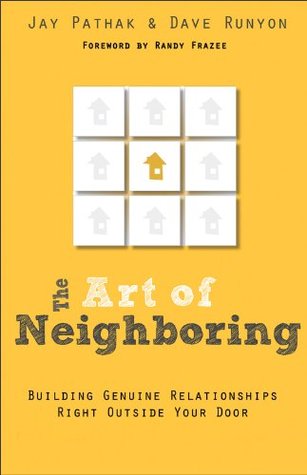More on this book
Community
Kindle Notes & Highlights
by
Jay Pathak
Read between
March 10 - June 20, 2022
Maybe, I thought, just maybe, there’s a way for us to go where the people already are, instead of trying to get people to come to us.
We can begin by noticing that we have neighbors, people who at the moment are nameless and faceless.
The problem is, however, that when we aim for everything, we hit nothing. So when we insist we’re neighbors with everybody, often we end up being neighbors with nobody.
Today as we read the parable, we go straight for loving the neighbor on the side of the road. Thus we make a metaphor of the neighbors—a metaphor that doesn’t include the person who lives next door to us. If we don’t take Jesus’s command literally, then we turn the Great Commandment into nothing more than a metaphor. We have a metaphoric love for our metaphoric neighbors, and our communities are changed—but only metaphorically, of course. In other words, nothing changes.
Author John Ortberg has coined the phrase “hurry sickness.” As he says, “Love and hurry are fundamentally incompatible. Love always takes time, and time is the one thing hurried people don’t have.”[3]
The idea of being interruptible is being willing to be inconvenienced. It means developing a mind-set that accepts the interruptions of others.
Do I live at a pace that allows me to be available to those around me?
We need to be willing to follow Jesus and choose to be with others in uncomfortable situations, because we can’t always expect people to come onto our turf; we must also be willing to enter their world.
All it requires is that you take a step back, think about things that you already love, and invite your neighbors to join in.
When we show where our story overlaps with our neighbor’s story, and with God’s story, then our neighbors might start wondering if their story might join God’s as well.
Marketing is so prevalent in our culture that we’ve learned to put up barriers.
If we don’t allow people to meet any of our needs, we limit what God wants to do in our neighborhood and our life.
The hardest part about loving others is that you can always do more.
Loving our difficult neighbors has the potential to transform us into the people God wants us to be.


